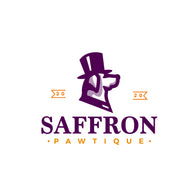
How To Be An Eco-Friendly Pet Owner
Have you been thinking about the environment and your carbon footprint? Recently, you too, may have noticed just how much your pet products could be adding and creating a carbon pawprint for you. But how can you change your pet products to reduce the impact?
Maybe you've looked around and found it difficult to source products to help?
Fear not, there seem to be more pet stores (especially online) that are focused on eco-friendly products; just like us. You can use these to help ensure your pet supplies are helping your environment too.
What if you want to do more and understand why you should choose particular brands? There are a few things that we can consider to help us being eco-friendly pet owners, these are likely to help with day-to-day living too.
How To Be An Eco-Friendly Pet Owner
Five considerations to be eco-friendly:
1. Consider The Source
This means thinking about where the companies are getting their materials from, what materials they are using and the process they use to create those materials. Some of the eco-friendly materials to look out for are as follows:
- Recycled Plastic = A brand that uses recycled plastic is helping to reduce the plastic waste that exists and is polluting our environment. Instead of adding to the pollution problem with more, newly produced plastic, they are aiding to reduce the plastic by recycling it.
- Sustainably Sourced Food = Farming can add to pollution and not all animals are treated fairly. Do your research and ensure your food comes from those who care about how farming is done. Does their farming meet regulations? Are they open about where they are sourced?
- Use Eco-Friendly Materials = source those that are kind to the environment, that don't stay around for years or add to pollution levels. For example Hemp is a natural, biodegradable product.
- Long Lasting = using a product that lasts for a long time reduces the amount of waste caused by having to keep replacing the products.
- Natural shampoos/pest protection = Check that you use products that do not contain harmful chemicals or micro-plastics that end up being washed down the drain. These cause damage to our environment so it helps to find ingredients that are natural / organic and that do not contain micro-plastics.
2. Recycle
Do you have pet toys or collars and other products that you no longer need but are completely useable? Then recycle them: give them to a friend, donate to a charity, or save them for the next pet you may get that might find them useful (less need to buy new!) Or you may be able to get creative and turn that cat collar into a bracelet, or a dog lead into a belt.
3. Reduce Single Use Plastic
If it must be plastic can it last you a long time and not just be used once before discarding it? For example our Wilderdog Dog bag is designed to carry your pet's kibble feed with a scoop to help you measure the food out. This has helped people not use plastic bags for individual meals while going camping that are then discarded.
4. Clear Up After Your Dog
One of the biggest plastic uses for dog owners is clearing up their poo. They say you need 4-6 bags for one dog per day. If all of these are plastic that's 6 extra bags a day sitting for hundreds of years in our world. Find biodegradable or compostable options and place them in relevant bins. Do not leave dog poo sitting around because when the decompose they can pollute rivers, so they do need to be placed in the bins.
5. Leave No Litter On Adventures
There is nothing more annoying than going on a walk to somewhere new, or even where you've been before, getting to a lovely spot and it's covered in evidence of previous explorers. Furthermore it's polluting that beautiful landscape you love exploring as it is not in the correct bin to be process correctly (hopefully being recycled). All it will do is sit and slowly decompose - and who knows how long that would take. If they are lightweight pet products these will be taken by the rain or wind to another area and most of that waste will eventually end up in the ocean unless intervened. So please, ensure you take your items will you and put in relevant disposable areas if you do not want them any more.
These are only five considerations to help you on your way to be an eco pet owner. Every little thing you do helps. If everyone makes some small changes it will have a much better impact on our environment than just a couple of people being 100% eco-friendly.
Let us know what other things you consider or do to help you be more eco-friendly.
If you liked this you may also like our blog about ocean plastic, read here.
